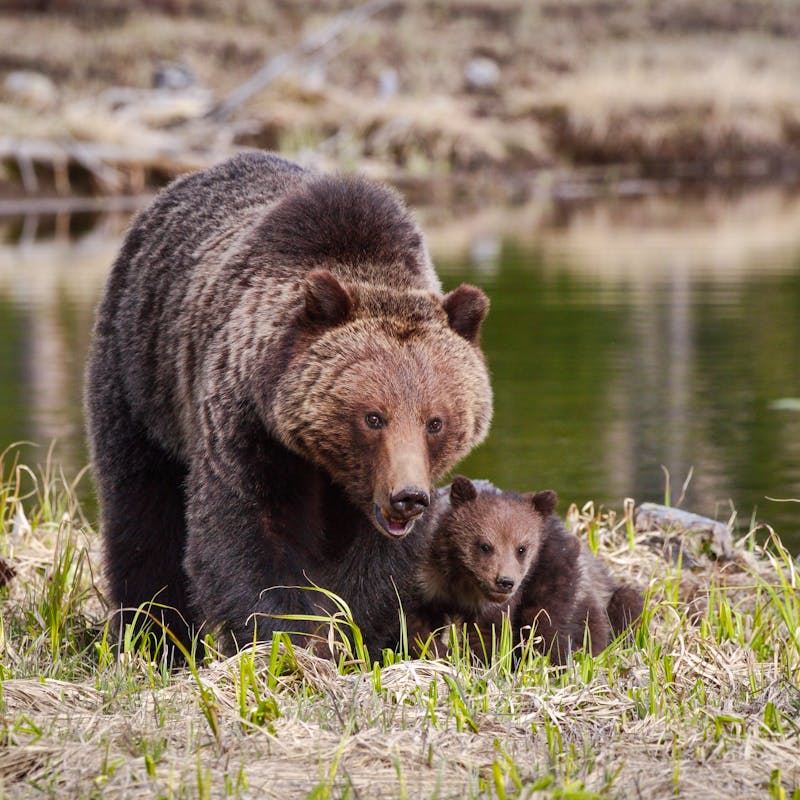Tweet“The National Wildlife Refuge System is essential to conserving America’s biodiversity and addressing the escalating climate crisis. The Biden administration’s actions to enhance conservation on refuges is a big step in the right direction,” said Peter Nelson, Defenders of Wildlife’s director of public lands. “Defenders looks forward to working with Secretary Haaland to expand opportunities for further conservation and public enjoyment of this special system of lands and waters.”
U.S. Secretary of the Interior Deb Haaland today announced that $78 million in grants were approved to help the U.S. Fish and Wildlife Service conserve or restore nearly 500,000 acres of wetland and associated upland habitats for waterfowl, shorebirds and other migratory birds across North America.
“It’s been a really tough few years for migratory birds,” said Renee Stone, Defenders of Wildlife's senior vice president of conservation programs. “Today’s announcement is welcome news after years of treating migratory birds as collateral damage for development projects. There is still so much to do to right the wrongs of the Trump administration, but this is a positive signal that birds are a priority for Interior.”
The grants were approved by the Migratory Bird Conservation Commission, which Secretary Haaland chairs and made possible through the North American Wetlands Conservation Act (NAWCA). The grants will be matched by nearly $125 million in partner funds. Partners on the wetland restoration projects include private landowners, states, local governments, conservation organizations, sportsmen’s groups, Tribes, land trusts, and corporations.
“It’s remarkable that the programs we are discussing were established before we appreciated what climate change was – or how threatened many bird populations are,” said Secretary Haaland in a DOI press release. “Not too long ago, a study found that there are 3 billion fewer birds in North America than there were 50 years ago. This Commission’s investments are critical to keep habitats whole and connected and help birds flourish for the next hundred years and beyond.”
The Commission also approved an additional $1.8 million to acquire land in three national wildlife refuges for habitat conservation and public use.
The funding to acquire 2,052 acres for three national wildlife refuges through the Migratory Bird Conservation Fund was derived primarily from the sale of Federal Migratory Bird Hunting and Conservation Stamps, commonly known as Duck Stamps. Since nearly all of the Federal Duck Stamp Program proceeds are used to conserve habitat for birds and other wildlife, outdoor enthusiasts including birders and nature photographers also buy Duck Stamps to help preserve some of the most diverse and important wildlife habitats in our nation.
The National Wildlife Refuge System is dedicated to the conservation of America’s fish, wildlife and plants and includes 568 refuges, including at least one in every state and U.S. territory. Today’s announcement enhances conservation in three Eastern refuges.
The acquisition of 70 acres of wetland habitat within the Currituck National Wildlife Refuge in North Carolina will support American black ducks, wood ducks and mallards, and other migratory birds. It will increase the Refuge’s resilience to sea level rise.
At Supawna Meadows National Wildlife Refuge in New Jersey, approximately 171 acres of tidal and freshwater marsh will provide habitat for thousands of wintering waterfowl, as well as shorebirds and colonial-nesting wading birds.
The Umbagog National Wildlife Refuge in Maine will gain 1,811 acres of wetlands and surrounding uplands for nesting habitat for waterfowl, including wood ducks, common goldeneyes, common mergansers, as well as other migratory birds.
“The National Wildlife Refuge System is essential to conserving America’s biodiversity and addressing the escalating climate crisis. The Biden administration’s actions to enhance conservation on refuges is a big step in the right direction,” said Peter Nelson, Defenders of Wildlife’s director of public lands. “Defenders looks forward to working with Secretary Haaland to expand opportunities for further conservation and public enjoyment of this special system of lands and waters.”
Many national wildlife refuges are the only place in the world for species on the edge of extinction and thus act as essential strongholds for the conservation and recovery of imperiled fish, wildlife and plants. For instance, 513 ESA-listed species are found or are dependent on at least 444 refuges. Some refuges harbor a particularly high diversity of ESA-listed species, underscoring their importance not just to species like whooping crane and Red Wolf, but all biodiversity.
For over 75 years, Defenders of Wildlife has remained dedicated to protecting all native animals and plants in their natural communities. With a nationwide network of nearly 2.1 million members and activists, Defenders of Wildlife is a leading advocate for innovative solutions to safeguard our wildlife for generations to come. To learn more, please visit https://defenders.org/newsroom or follow us on X @Defenders.
Media Contact
News

Defenders Celebrates Oregon Bill that Paves the Way for Safer Roads


